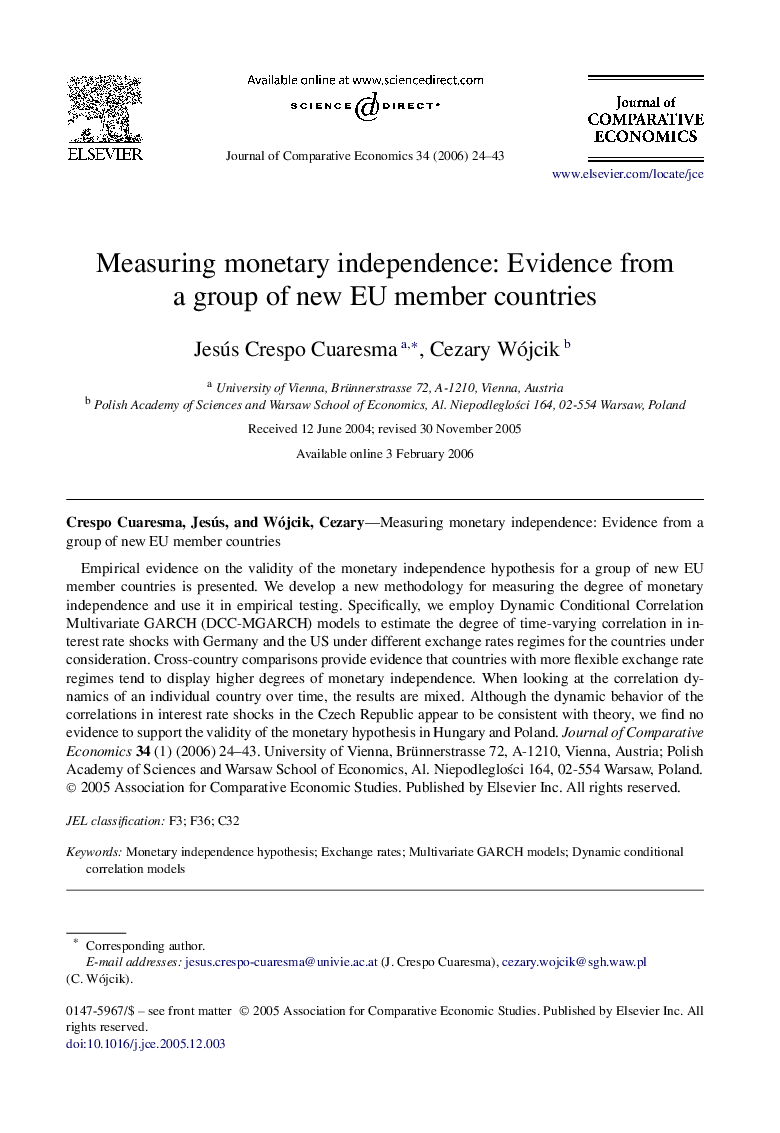| Article ID | Journal | Published Year | Pages | File Type |
|---|---|---|---|---|
| 5092726 | Journal of Comparative Economics | 2006 | 20 Pages |
Abstract
Empirical evidence on the validity of the monetary independence hypothesis for a group of new EU member countries is presented. We develop a new methodology for measuring the degree of monetary independence and use it in empirical testing. Specifically, we employ Dynamic Conditional Correlation Multivariate GARCH (DCC-MGARCH) models to estimate the degree of time-varying correlation in interest rate shocks with Germany and the US under different exchange rates regimes for the countries under consideration. Cross-country comparisons provide evidence that countries with more flexible exchange rate regimes tend to display higher degrees of monetary independence. When looking at the correlation dynamics of an individual country over time, the results are mixed. Although the dynamic behavior of the correlations in interest rate shocks in the Czech Republic appear to be consistent with theory, we find no evidence to support the validity of the monetary hypothesis in Hungary and Poland. Journal of Comparative Economics 34 (1) (2006) 24-43.
Related Topics
Social Sciences and Humanities
Economics, Econometrics and Finance
Economics and Econometrics
Authors
Jesús Crespo Cuaresma, Cezary Wójcik,
